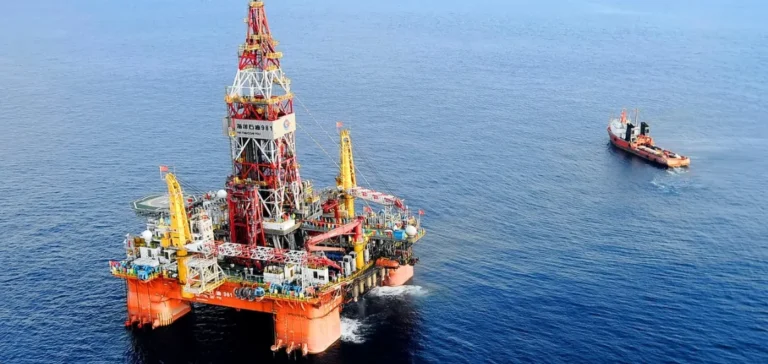Japan has officially condemned the presence of 21 drilling platforms installed by China in a contested area of the East China Sea, citing a potential violation of a 2008 bilateral agreement. The Japanese Ministry of Foreign Affairs lodged a formal protest with the Chinese embassy in Tokyo, calling for an immediate resumption of negotiations on the agreement’s implementation.
The Chinese installations are located on the Chinese side of the de facto maritime demarcation line, but Tokyo fears they may extract gas from deposits extending into Japan’s exclusive economic zone (EEZ). According to Japanese authorities, the boundary should follow the median line between the two countries, while China supports a delimitation based on the continental shelf, situated closer to Japan.
21 platforms in a disputed zone
The dispute arises from overlapping EEZ claims in this hydrocarbon-rich region. Although the platforms are positioned within waters under Chinese administrative control, Tokyo believes their exploitation could involve resources crossing the median line.
“It is extremely regrettable that China is pursuing unilateral development in an area where an agreement had been reached,” the Japanese Ministry of Foreign Affairs stated. The 2008 agreement provided for joint development of gas resources and prohibited any independent drilling activity.
An agreement inactive since 2010
The Japan-China agreement was never implemented, with talks on its application suspended in 2010. Since then, the situation has remained unresolved, with periodic unilateral actions on both sides. Tokyo urges Beijing to return to the negotiating table to revive the agreed framework.
In response, the Chinese Ministry of Foreign Affairs rejected Japan’s accusations, describing the exploited areas as “uncontested waters under Chinese jurisdiction.” Ministry spokesperson Guo Jiakun stated that “China’s oil and gas development activities in the East China Sea fall entirely under its sovereignty.”
Ongoing tensions over maritime resources
Tensions in the East China Sea form part of broader maritime disputes involving China and its neighbours. Beyond energy resources, the uninhabited Senkaku Islands (Diaoyu in Chinese), administered by Japan but claimed by Beijing, remain a frequent flashpoint. Chinese naval and aerial incursions in the area are regularly reported.
Nevertheless, the Chinese Ministry of Foreign Affairs has reiterated its intention to “fully and effectively implement the principle-based consensus” on the disputed zone, while reaffirming its sovereign rights over the exploited area. No timeline for resuming negotiations has been announced by either government.






















